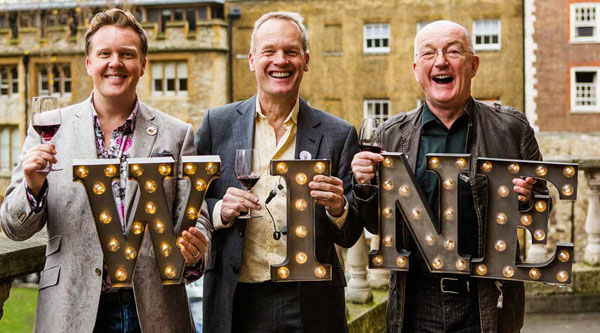1. What was your first comission as a wine writer?
I got a job as an editorial assistant on Wine & Spirit magazine in 1985, but I'm not sure what I wrote about first. I have a vague memory that it was an overview of the cream liqueur market. The first piece I remember enjoying researching and writing was about the 1986 Bordeaux en primeur campaign.
2. What motivated you to study to become a Master of Wine when you were already established in journalism?
I'm one of those strange people who enjoy exams. I also thought it would be a challenge, and I like those too. With hindsight, I'm really glad I did it, but I'm not sure where I found the time to do all that studying.
3. We know you have a penchant for Northern Rhône Syrah what else features heavily in the Atkin 'Cave Personelle'?
I buy far too much wine, to be honest. My cellar is pretty eclectic, but the regions and countries that are most heavily represented are the ones I write about every year: Burgundy, Rioja, South Africa, Argentina, Bordeaux and Chile. I also love Loire and northern Rhône wines, as well as German Rieslings, Sherry, Barolo, Brunello di Montalcino and Champagne. That would be 95% of what I drink.

4. Can you tell us an interesting food and wine pairing from your travels?
Lamb and a good Rioja Reserva from a vintage like 2010. Hard to beat.
5. Is there a wine region or style you just don't 'get' or get on with?
I find Pinot Gris/Grigio a pretty boring grape. High alcohol Californian and Australian wines are not my bag, And without wanting to sound like an old fart, many of the wines that are sold as 'natural' leave me cold; badly made wines sold to people who aren't aware that they're faulty.
6. You speak French and Spanish. Does the ability to commune with wine-makers in their native language give you a deeper insight into their objectives?
Yes, I think it does, especially in a region like Burgundy where many producers don't speak English. We are all more comfortable expressing ourselves in our own language, so people are always more likely to tell you more interesting things (gossip, especially) if they're not translating themselves. I think speaking a foreign language gives you an insight into someone else's culture. For me, it's one of the pleasures of writing about wine.
7. With a weak pound where should we be looking for good value drinking this Winter?
South Africa and Spain. Both countries are under-priced in wine terms.
8. Do you think that global warming is having an adverse effect on the wines that we drink?
Not yet. But it will in many cases. I think that climate change is a more apposite term than global warming, although the planet is clearly heating up. What we are seeing is growing unpredictability, not just earlier harvests. If things go on like this, the wine business will have to rethink which grapes it grows where.

9. Who or what has been the greatest influence on your career in wine?
Oz Clarke. A great friend, who is generous, kind, funny, knowledgeable and supremely enthusiastic about wine. He has always encouraged me to speak my own mind, but has also taught me a lot over the decades. He's also fun to share a bottle (or three) with.
10. What advice would you give to a college leaver hoping to follow in your footsteps?
It's much harder to make a living out of journalism today than it was when I started. Papers and magazines are closing by the month as advertising revenues collapse. But there is still room for new voices. I would advise someone to look at lots of different platforms – to be a wine communicator, if you like – rather than a wine writer as such. Look at YouTube, look at Instagram, build your own website or blog. But don't expect it to make you rich.
Tim Atkin:
W: www.timatkin.com
T: @timatkin








